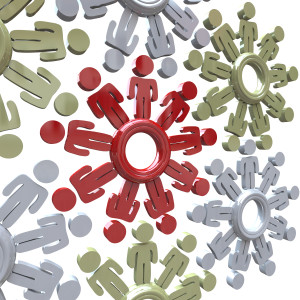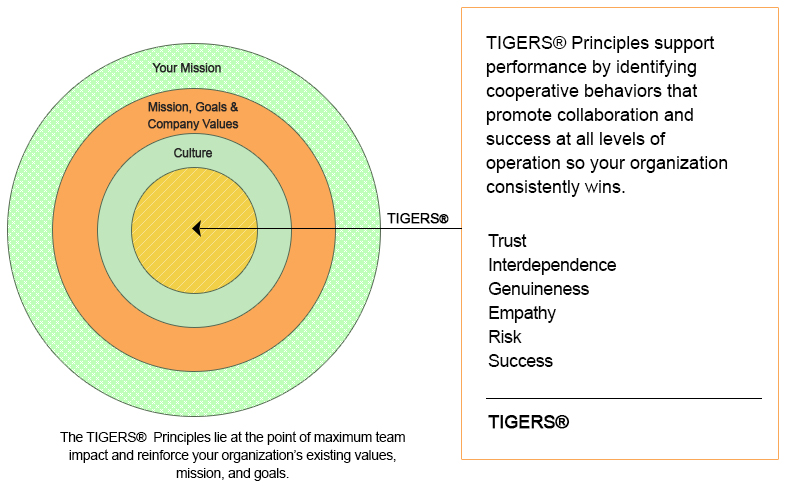 Artificial Intelligence is the buzz now. Will it replace jobs? Will it help or hinder local economies? How will it affect teams? The answers to these questions point overwhelming to how advancing artificial intelligence requires group dynamic advancements, too.
Artificial Intelligence is the buzz now. Will it replace jobs? Will it help or hinder local economies? How will it affect teams? The answers to these questions point overwhelming to how advancing artificial intelligence requires group dynamic advancements, too.
New technologies, specifically advancements in AI, have prompted leaders to shift their focus in order to remain competitive and successful in the global climate. According to Mercer’s 2018 Global Talent Trends Study – Unlocking Growth in the Human Age, 95 percent of US companies are planning organization design changes and 91 percent have included innovation on their core agenda for 2018. This surfaced human resource concerns. However, the study also points to how advancing artificial intelligence requires group dynamic advancements, as well.
While the ability to change is a key strategy for success in the global marketplace, employees are looking for leaders who set clear direction, as well as control of their personal and professional lives with more than half of employees seeking flexible work options. The challenge for organizations, then, is to build employee soft skills for the group process problems they will face.
According to Ilya Bonic, President of Mercer’s Career Business Units, “This year we saw palpable excitement from executives about shifting to the new world of work. They are pursuing an agenda of continuous evolution – rather than episodic transformation – to remain competitive. They recognize that it’s the combination of human skills plus advanced digital technology that will drive their business forward.”
As AI is on everyone’s mind, the question has been: will it impact group dynamics? According to this new research, it appears so. It will also surface positive benefits in the areas of the TIGERS® six principles: trust, interdependence, genuineness, empathy, risk and success for group process to be successful.
Artificial intelligence requires group dynamic advancements in soft skills
Soft skills that support the TIGERS six principles group behavior dynamics will be even more important. Group dynamics are highlighted as an integral area necessary for success. Looking forward, as mundane work can be replaced by AI and robotics, employees are freed to be problem solvers. This means forming and developing agile teams becomes increasingly important. Therefore, how employees relate to one another, work through problems and address growth opportunities is now even more critical to career success.
Soft skills are typically harder to assess than hard skills. Chief executives, however, are starting to realize the importance of these intangible but important qualities that allow team members to work and interact with others effectively. Some important soft skills to focus on include:
- Listening. Good communicators know how to listen to others, which includes not thinking of a response while the other person is talking. They also ask follow-up questions and make the conversation about the other person – not themselves.
- Taking accountability. The ability to take accountability for your actions is the core of integrity, and it builds trust between team members.
- Thinking creatively. Creative thinking sets the stage for innovation, and the best innovators are able to work with what they have without focusing on what they don’t, and they get the job done.
- Knowing your feelings. Emotional awareness is essential for business and life. Sometimes your initial emotion isn’t your true emotion, and you may need to take a minute to reflect before you act. Seek guidance from a trusted source or sleep on it before sending an angry letter to ensure you aren’t hastily acting out of one emotion or another.
- Having empathy. Empathy is one of the TIGERS six principles for success, and it’s vital for a reason. You can’t genuinely connect with others if you aren’t able to put yourself in their position and see things from their point of view. And, when it comes to resolving team misunderstandings, procedural problems and conflict, empathy is required to solve interpersonal problems at the root cause.
- Group process. Understanding the stepping stones and key criteria for effective group process.
Artificial intelligence requires group dynamic advancements through training
To help improve your team’s soft skills, follow the following training formula:
- Assess your group behavior dynamics to determine what areas of trust, interdependence, genuineness, empathy, risk resolution and success require bolstering.
- Determine what areas of the balance sheet would benefit from improvement in any of those areas.
- Build agile team development around specific company initiatives into the soft skill and team development training design.
- Train team members in the soft skills that have risen to the top as important from the assessment.
- Develop team, train and track your progress (the ultimate t to the 3rd power for success “t3”).
Artificial intelligence is here. It’s quickly becoming more prevalent in the workplace. AI is changing how teams function and operate. While AI allows for advancements in some areas, leaders need to shift their focus toward group dynamics and effective group process to ensure their team members are best suited for working in the new environment. since artificial intelligence requires group dynamic advancements, too, shifting employee training focus onto soft skills and group development allows leaders and their teams to remain competitive in the global climate.
We also found additional resources that will help you take the conversation further.
- 2018Global Talent Trends Study – Unlocking Growth in the Human Age
- As AI Shapes the Future of Work, Employers Focus on Human Skills and Employees Crave Jobs with Purpose
- 5 ‘Soft’ Skills You Need to Master for Workplace Success
- Measuring You Work Culture Behavior Dynamics to Target Successful Soft Skill Training Opportunities
Copyright TIGERS Success Series, Inc. by Dianne Crampton
About TIGERS Success Series
 TIGERS® Success Series takes the guesswork out of workforce development. TIGERS provides a comprehensive, robust system for improving both your work environment and profitability.
TIGERS® Success Series takes the guesswork out of workforce development. TIGERS provides a comprehensive, robust system for improving both your work environment and profitability.
We specialize in developing high performance work cultures. Scaled to grow as your organization and leadership performance grows, our proprietary Team Behavior Profile and Management training workshops are based on the six principles we have found to be the right mix to make this happen.
The TIGERS 6 Principles are Trust, Interdependence, Genuineness, Empathy, Risk and Success. Born from our many years of business, psychology, and educational group dynamic research, and subsequent four years of independent evaluation, we instill and sustain behaviors that improve work group performance and talent retention for measurable ROI.
For more information or to request a presentation to your group or association, call 1+877-538-2822.
Thanks for sharing. I read many of your blog posts, cool, your blog is very good.